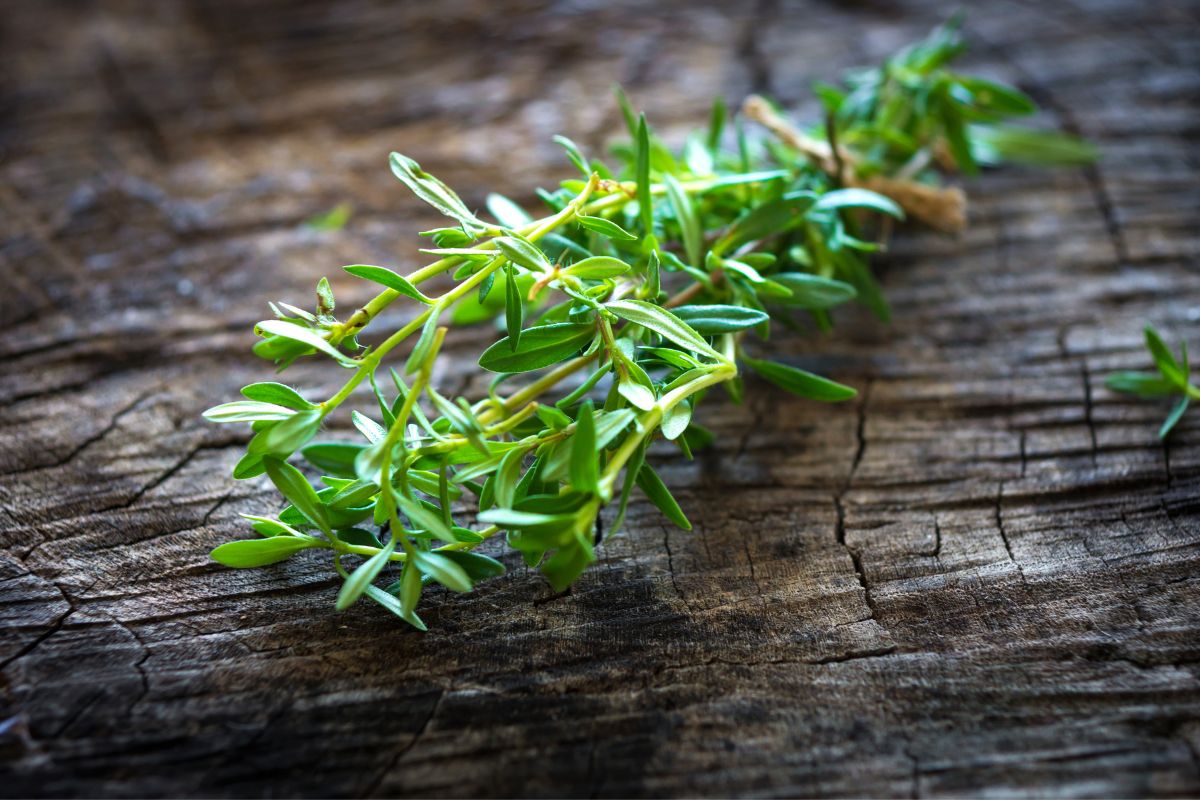Savory is an aromatic herb in the mint family with a sweet, peppery, earthy flavor with hints of mint, thyme, and marjoram. The small, green plant is native to the Mediterranean region and is a staple spice in Italian and French cooking. The best substitutes for savory are winter savory, thyme, and sage.
Table of Contents
What is summer savory?
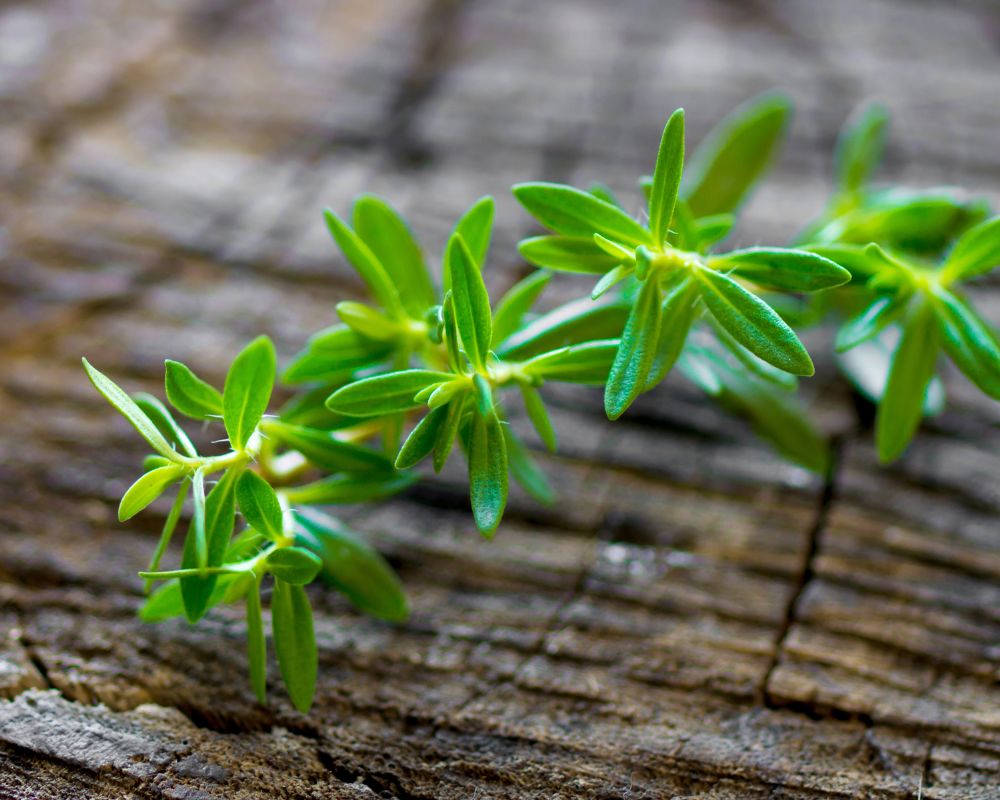
Summer savory is a small, low-growing annual herb in the mint family native to the Mediterranean region. It belongs to the Lamiaceae family, with other aromatic herbs such as basil, rosemary, sage, mint, marjoram, lavender, thyme, and oregano.
Summer savory plants are easy to grow, reaching about one foot high and growing in a heap-like formation with pale green leaves and summer-blooming white or light pink flowers. The name derives from their being at their best during summer.
Summer savory is one of the two most significant and common types of savory spice. When a recipe calls for savory spice, it requires summer savory rather than its winter-thriving counterpart—winter savory.
The aromatic herb features heavily in French and Italian cuisines, where it is used to season meats, rice dishes, lentils, and beans.
What does summer savory taste like?
The flavor profile of summer savory is delicate as it is a mix of many different tastes merged into one that works better in short-cooked meals than long-cooked dishes.
Summer savory has a slightly sweet, earthy, piney, peppery flavor with strong hints of thyme, mint, and marjoram.
The peppery, minty flavor is critical in cooked dishes, which is why many savory substitutes are peppery or minty. The pine flavor is also crucial in seasoning meats such as beef, chicken, and lamb.
What about winter savory?
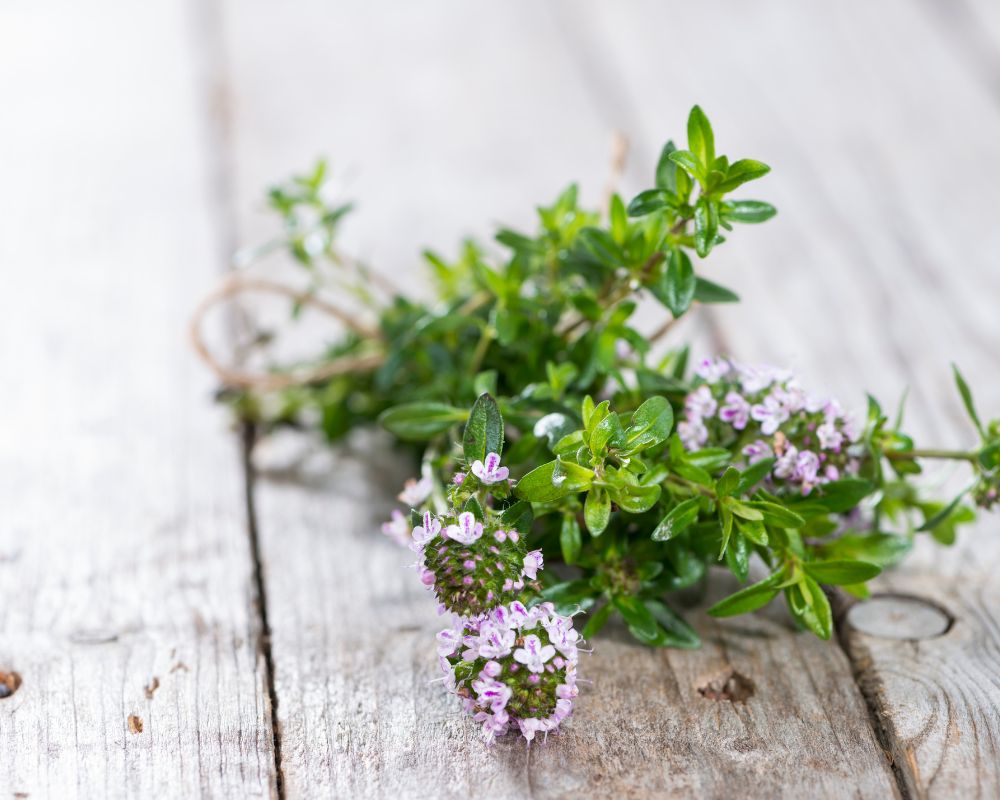
Both summer savory and winter savory have closely similar flavors that only differ slightly in intensity and some flavor profiles. They both have strong hints of mint, thyme, and marjoram.
Summer savory tastes sweeter and is less earthy. Winter savory tastes earthier, slightly bitter, and has hints of pine and sage. It has a stronger flavor than summer savory.
| Summer savory | Sweeter and less earthy |
| Winter savory | Earthier, slightly bitter, and has hints of pine and sage |
What spices can substitute for savory?
Savory spices can be hard to find outside the Mediterranean, especially in North America. If you can’t find it anywhere or run out of supply, try out the following substitutes:
- Winter savory
- Thyme
- Sage
- Marjoram
- Oregano
- Basil
- Rosemary
- Herbes de Provence
| Winter savory | Peppery, piney, earthy, and slightly bitter, has strong hints of sage, mint, thyme, and marjoram, great for long-cooking dishes stews, stuffing, soups, and vegetables |
| Thyme | Woodsy, earthy, grassy, slightly lemony, and slightly minty, works well with soups, stews, roasted bell peppers, salads, mashed potatoes, vegetables, fish, marinades, and roasted meats |
| Sage | Woodsy, earthy, peppery, slightly minty, and bitter, pairs well in long-cooking recipes such as poultry, beans, lamb, and potatoes |
| Marjoram | Sweet, earthy, minty, citrusy, and piney, has hints of oregano and thyme, great addition to salad dressings, poultry, soups, vegetables, sauces, and stews |
| Oregano | Earthy, slightly sweet, minty, and slightly bitter, pairs with tomato sauces, seafood, meats, fish, stews, and chicken |
| Basil | Has fresh, sweet fragrance and minty, slightly peppery taste, great for beef stew, salad dressings, pork dishes, salads, tomato pasta sauces, and soups |
| Rosemary | Has a fruity, slightly bitter, piney, citrusy, minty, and peppery flavor with hints of lavender, replaces savory in meat dishes, soups, stews, lentils, potatoes, and beans |
| Herbes de Provence | Herbes de Provence features savory as a main ingredient alongside other dried herbs such as rosemary, oregano, marjoram, and thyme, can flavor sauces, vegetable stews, and roasted or grilled fish and meats |
1. Winter savory
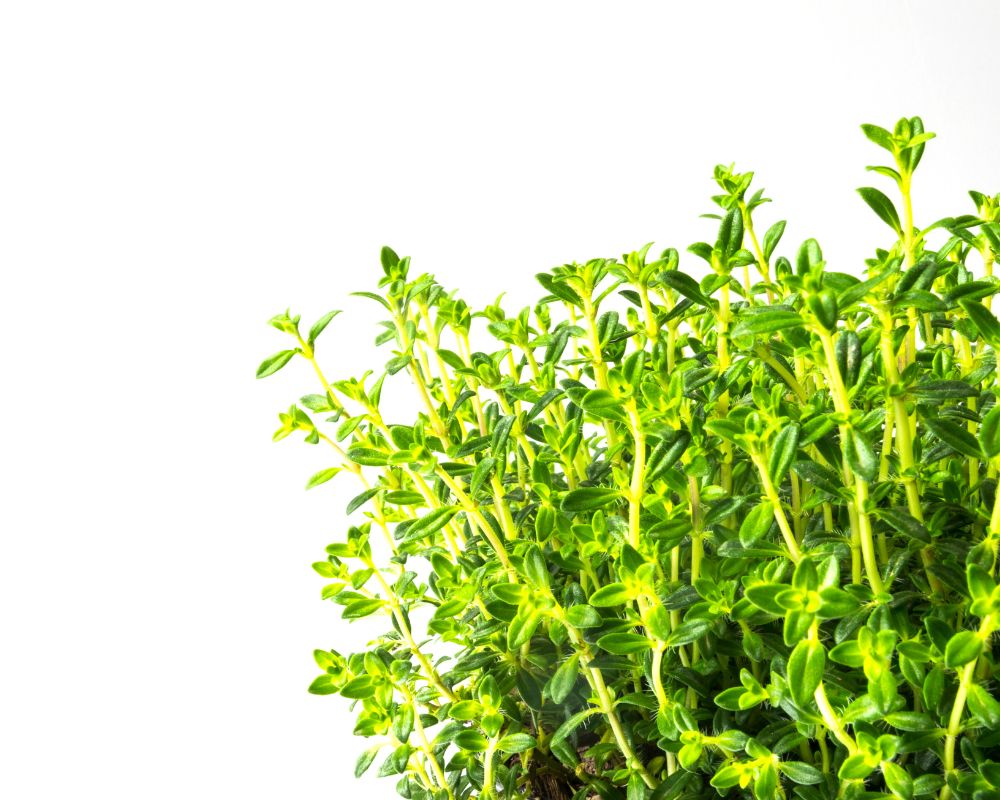
Winter savory is a hardy perennial plant native to the warm rocky mountains of the Mediterranean region. Its ability to thrive in winter informs its name. It’s also called mountain savory because of its growth in rocky mountain regions.
The culinary herb is peppery, piney, earthy, and slightly bitter. It has strong hints of sage, mint, thyme, and marjoram.
Use a 1:1 ratio to replace summer savory with winter savory in long-cooking dishes. Add it to meats, lentils, stews, stuffing, soups, and vegetables.
2. Thyme
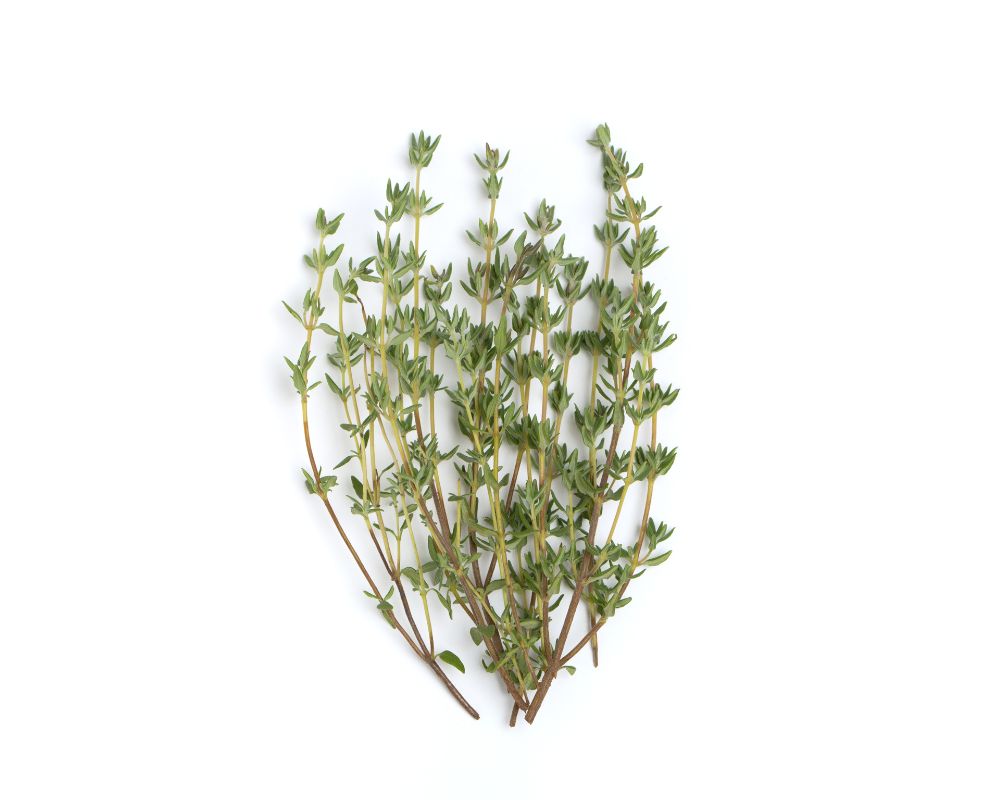
Like summer savory, thyme has a complex flavor profile. It is woodsy, earthy, grassy, slightly lemony, and slightly minty. It has hints of rosemary.
Use fresh or dried thyme in long-cooking dishes that use savory to add a minty flavor. The spice works well with soups, stews, roasted bell peppers, salads, mashed potatoes, vegetables, fish, marinades, and roasted meats.
3. Sage

Sage is another popular Mediterranean spice herb common in Italian and Balkan cuisines. It is woodsy, earthy, peppery, slightly minty, and bitter.
Replace savory herbs with sage in dishes with an herbal aroma. Fresh sage mimics the flavor profile of fresh savory better than its dried version, whose flavor is concentrated and may overpower other flavors in a dish.
Sage pairs well in long-cooking recipes such as poultry, beans, lamb, and potatoes. You can also use it in sauces and marinades that call for savory. Use a 1:1 substitution ratio.
4. Marjoram
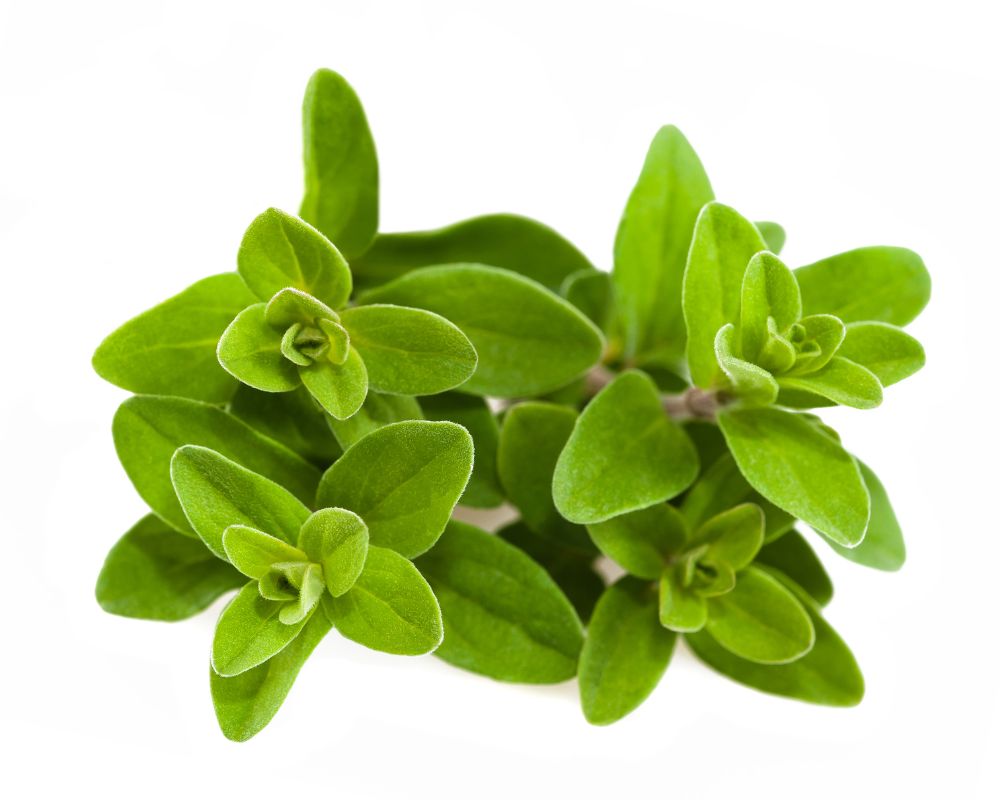
Being a member of the mint family, marjoram is sweet, earthy, minty, citrusy, and piney. It has hints of oregano and thyme.
The herb features spice blends such as zaatar, poultry seasoning, herbes de Provence, and Italian seasoning. It is common in Mediterranean and French cuisines.
Remember that prolonged exposure to heat causes its taste to break down.
Use marjoram in a 1:1 substitution ratio for savory in salad dressings, poultry, soups, vegetables, sauces, and stews.
5. Oregano
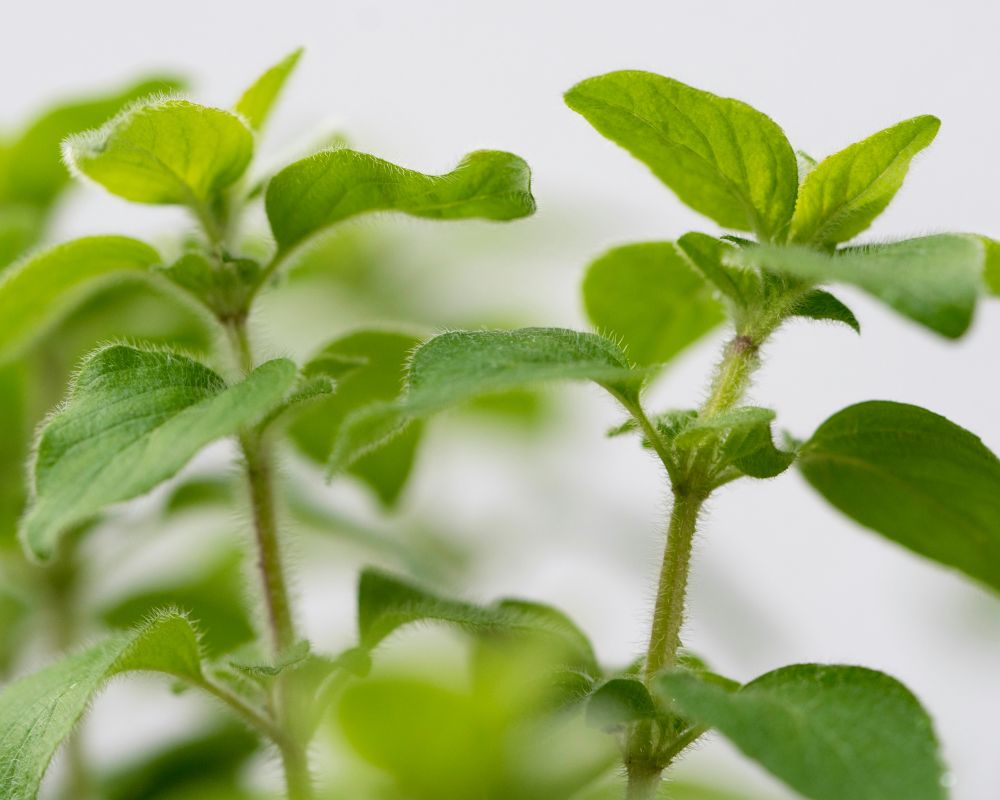
Here’s another herb in the mint family that makes a good substitute for savory because of its earthy, slightly sweet, minty, and slightly bitter taste. Oregano is popular in Mexican, Italian, and Mediterranean cuisines.
If you use fresh oregano, use a 1:1 substitution ratio.
Dried oregano has a concentrated flavor and may overwhelm other flavors in the dish. Use a 1/2:1 substitution ratio of dried oregano to savory spice.
Use oregano in long-cooking dishes such as tomato sauces, seafood, meats, fish, stews, and chicken. It’s also suitable for salads and baked vegetables.
6. Basil

The fresh, sweet fragrance and minty, slightly peppery taste of fresh basil makes it a popular culinary herb in Italy. You must add the spice close to the end of the cooking to reduce flavor loss as it is delicate.
A 1:1 ratio works when substituting fresh or dried basil for fresh or dried savory in beef stew, salad dressings, pork dishes, salads, tomato pasta sauces, and soups.
7. Rosemary
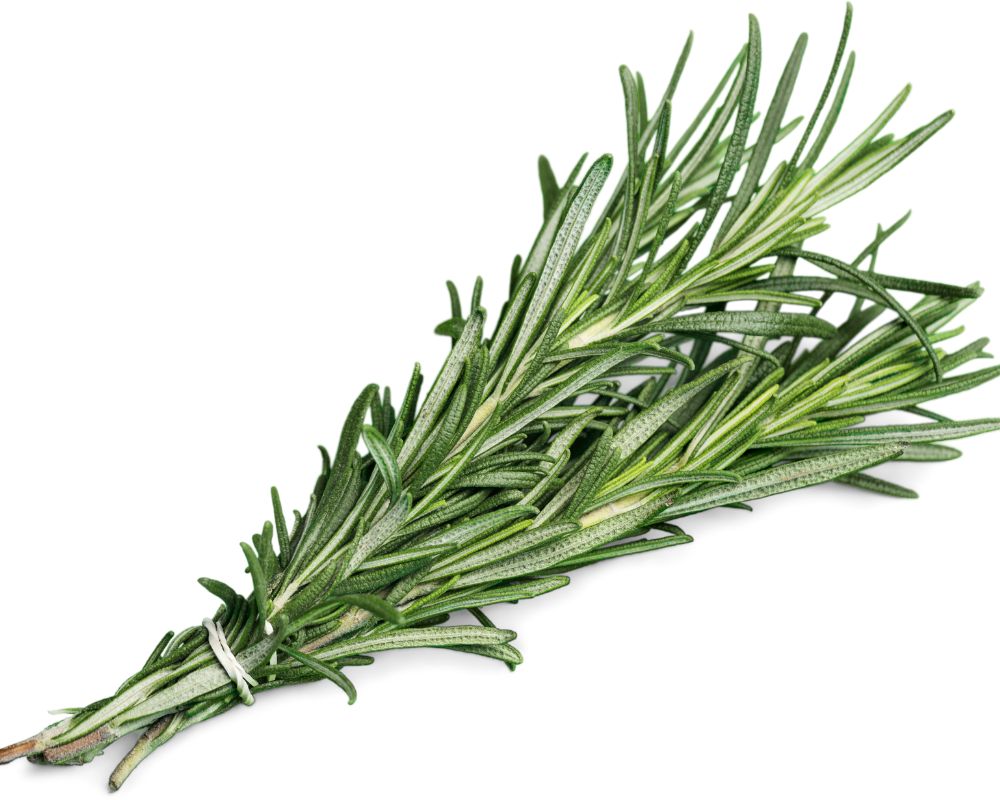
The Mediterranean region is home to yet another spice in the mint family that you can use to replace savory in meat dishes, soups, stews, lentils, potatoes, and beans.
Rosemary has a fruity, slightly bitter, piney, citrusy, minty, and peppery flavor with hints of lavender.
The roughness of rosemary leaves may add texture to your dish. The intense flavor of the spice may also overpower your dish. Use a 1:1 ratio to substitute savory with rosemary.
8. Herbes de Provence
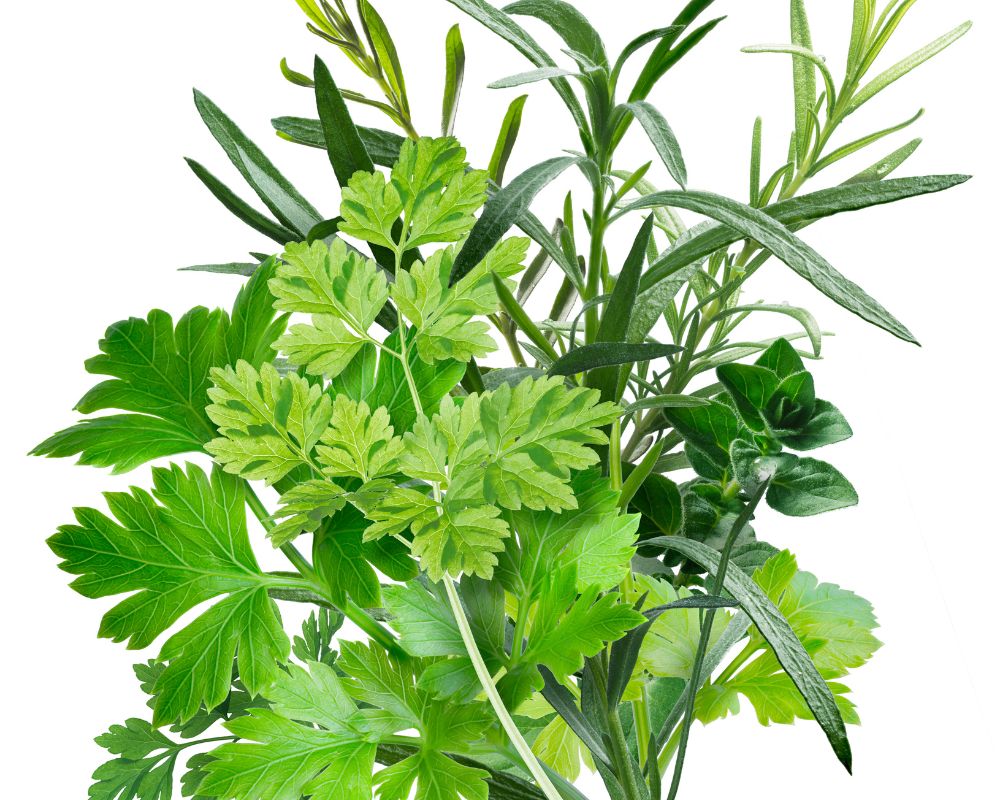
Spice blends are interesting alternatives to individual spices. For example, Herbes de Provence features savory as a main ingredient alongside other dried herbs such as rosemary, oregano, marjoram, and thyme.
You can add this spice blend before or after cooking to flavor sauces, vegetable stews, and roasted or grilled fish and meats.
Replace savory with herbs de Provence using a 1:1 ratio.

